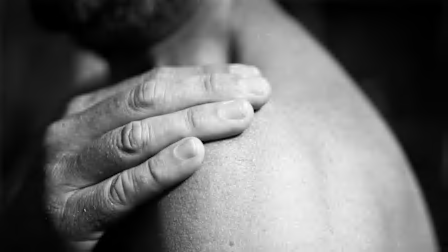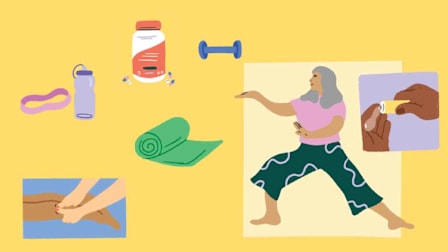Aching Jaw? Here's What to Do.
How to figure out what might be causing the pain, and how to make it stop

Where your lower jaw meets your skull, in front of your ear, you’ll find your TMJ, or temporomandibular joint. Problems with this joint or the surrounding muscles can result in temporomandibular disorder (TMD), which affects millions of Americans. And recent research suggests that TMJ dysfunction becomes more common with age, in both men and women.
It can cause clicking and popping, along with jaw pain, headaches, and difficulty opening your mouth or chewing food. The good news is that if you are in pain, TMD is often treatable with at-home remedies and other conservative interventions.
A Combination of Causes
The likelihood of arthritis-related joint pain increases every decade after age 50, says Sumit Yadav, MDS, PhD, professor of orthodontics at the University of Nebraska Medical Center College of Dentistry in Lincoln. And the joint problems that are caused by osteoarthritis can contribute to temporomandibular disorder. Arthritis can lead to cartilage breakdown, which can subsequently make the small disk in your jaw joint slip out of place.
Tired, tense jaw muscles can also cause clicking and pain—even without a joint problem. "The disk is held in place by ligaments, which function like rubber bands," says Matthew Messina, DDS, a consumer adviser spokesperson for the American Dental Association and assistant professor and clinic director at Ohio State Upper Arlington Dentistry. "Clenching muscles put tension on the rubber bands, and the disks can slip out of position."
Stress is one common cause of jaw clenching and tense muscles. And frequently chewing gum, Yadav says, can tire out those same muscles, which can contribute to TMD.
Easing the Discomfort
Whether the pain is due to joint or muscle problems, almost 90 percent of people with TMD respond to noninvasive treatments, according to Wolters Kluwer’s UpToDate, a decision-making tool for doctors.
When Jaw Pain Is Urgent
For some people, jaw pain can be a sign of a heart attack. "There are nerves from the heart that connect from the chest to the jaw, so issues in the chest can reflect there," says Annapoorna Kini, MD, cardiologist at Mount Sinai Hospital in New York City. Still, jaw pain isn’t a common symptom, and it probably wouldn’t be the only sign of a heart attack, says Kini.
Look out for chest pain, shortness of breath, arm pain, dizziness, sweatiness, or nausea at the same time—that could signal an emergency. The same is true if you have existing heart problems and sudden jaw pain; Kini recommends immediate medical care in that case. "When in doubt, if you’re having severe jaw pain, go to the emergency room," she says.
Editor’s Note: This article also appeared in the February 2024 issue of Consumer Reports On Health.




